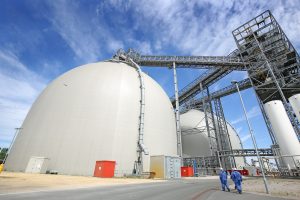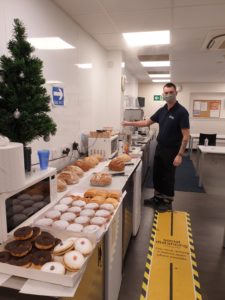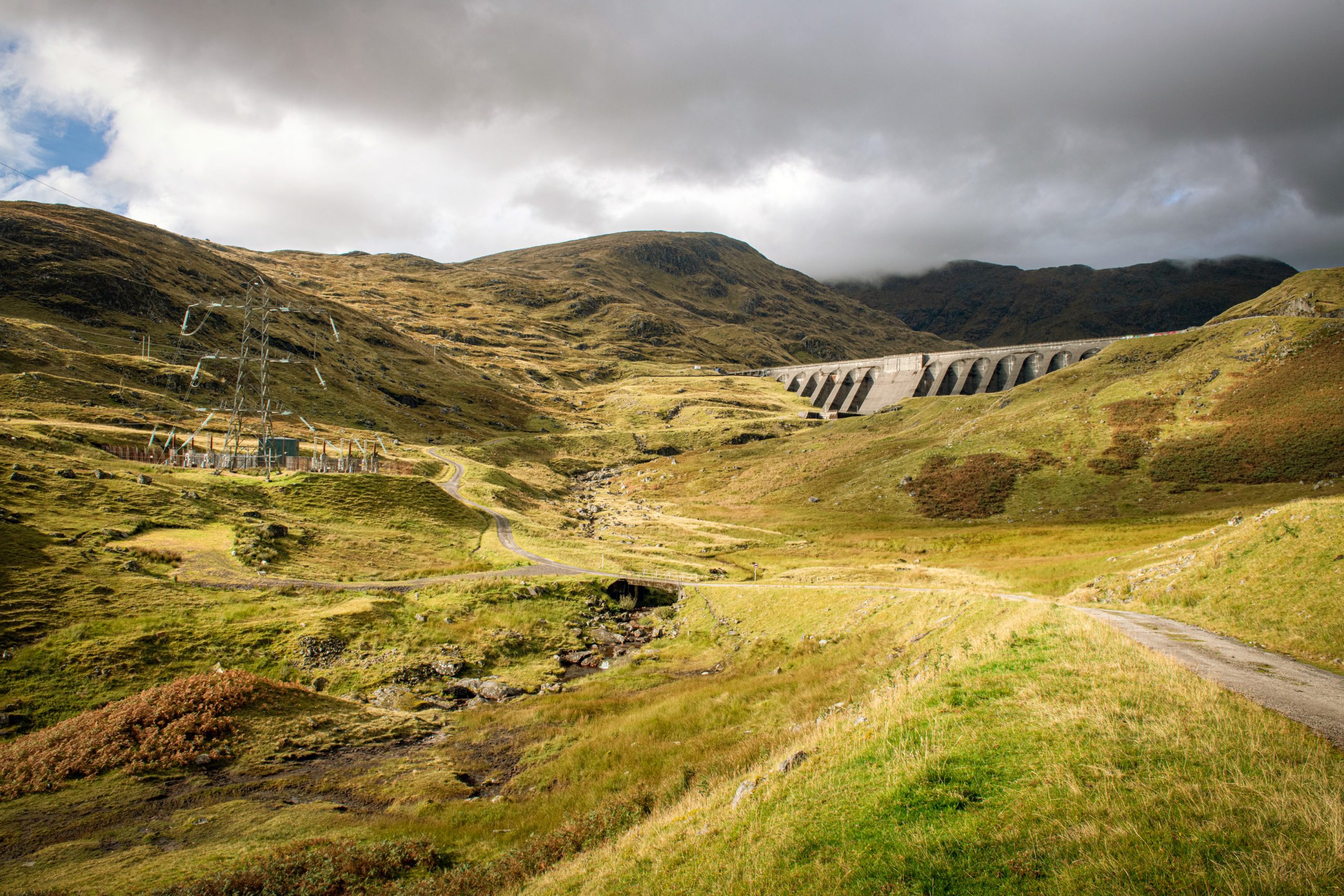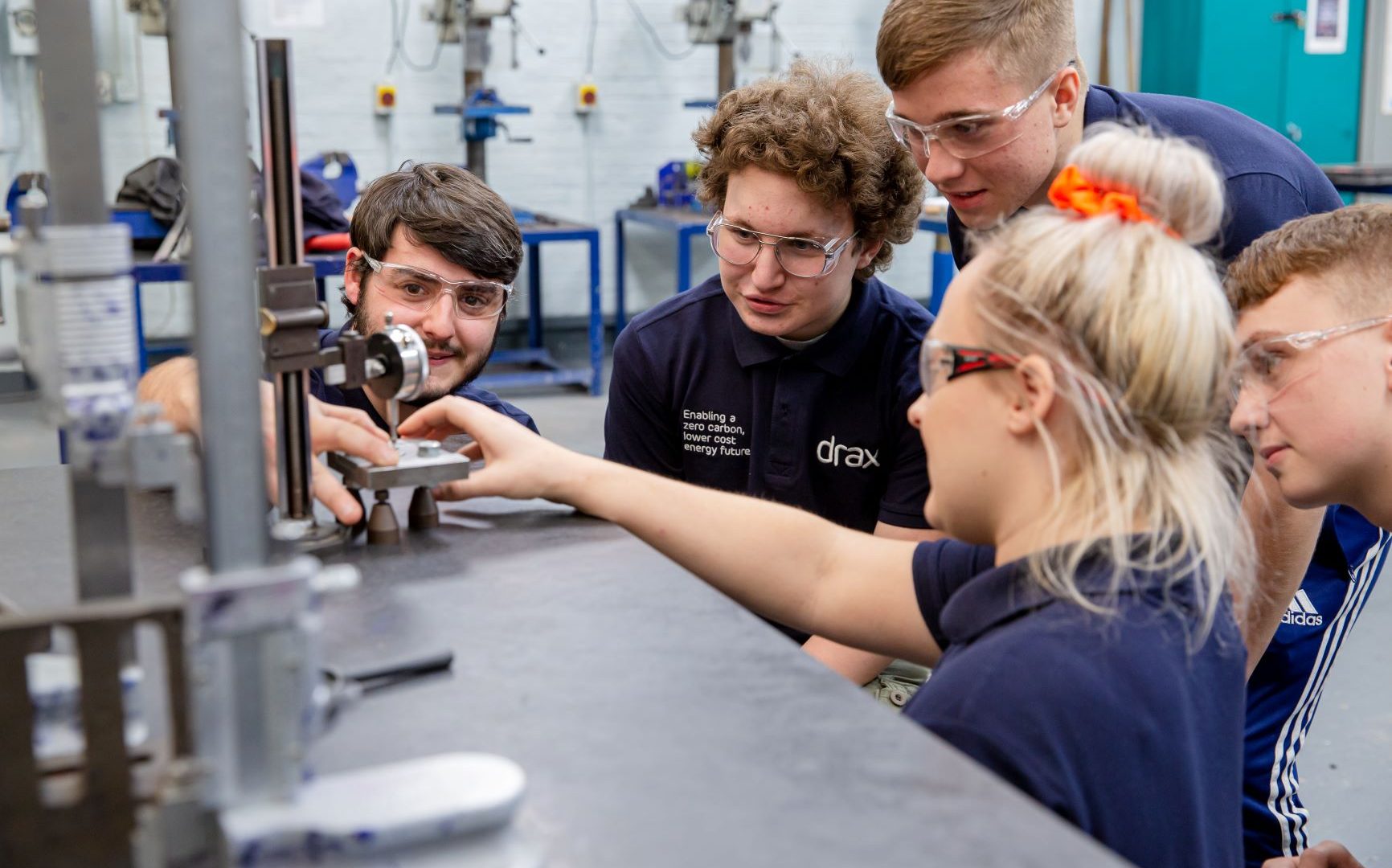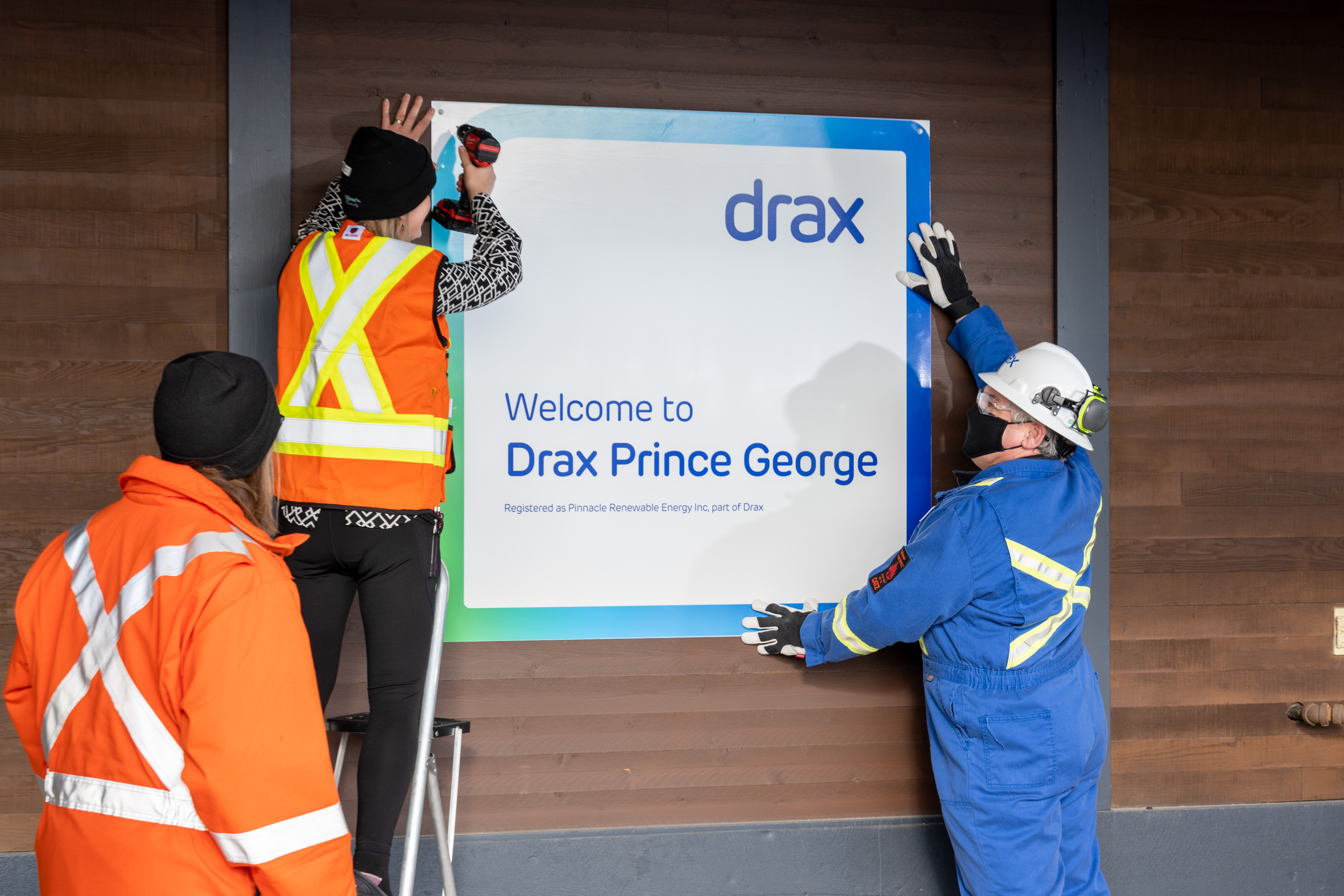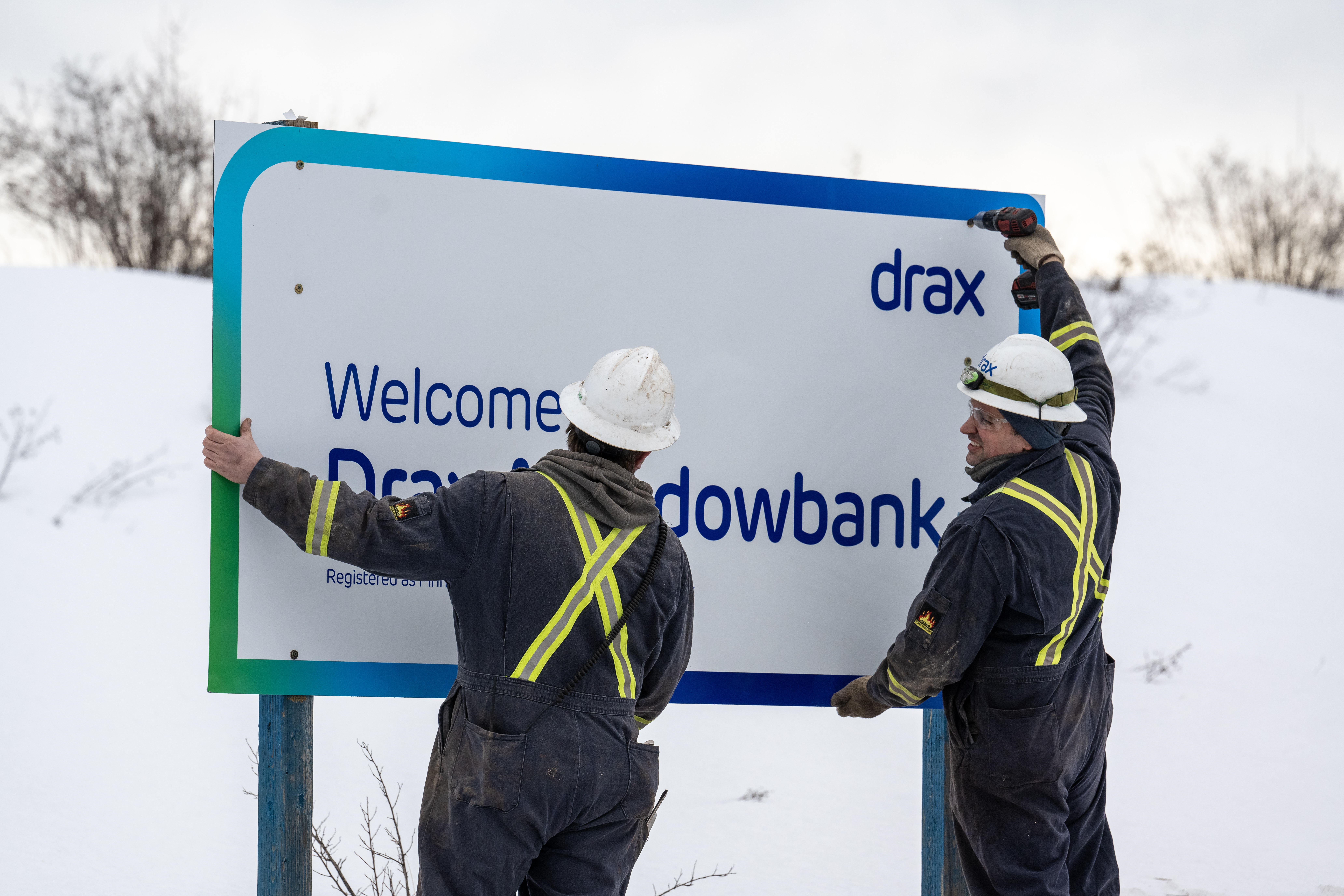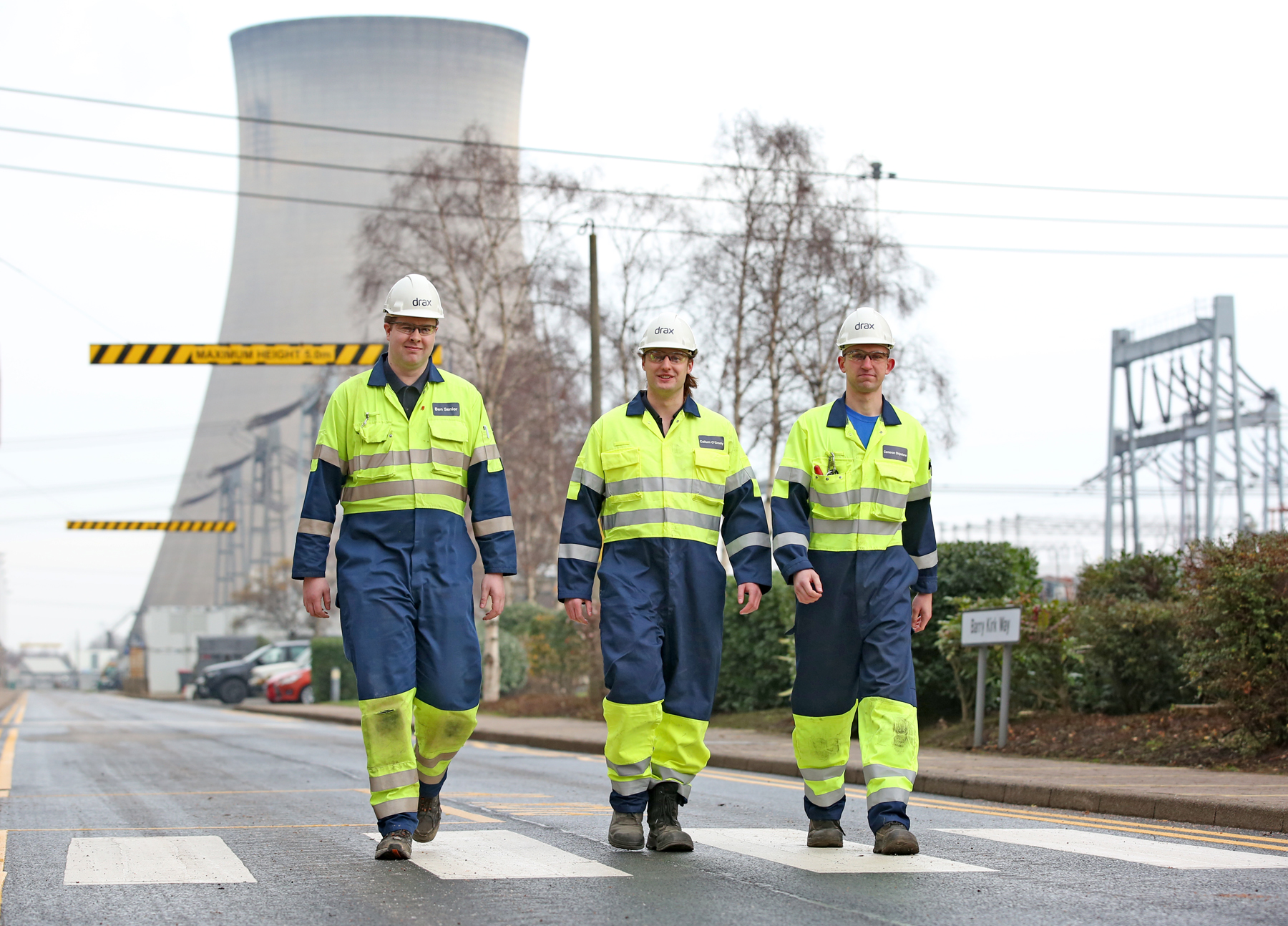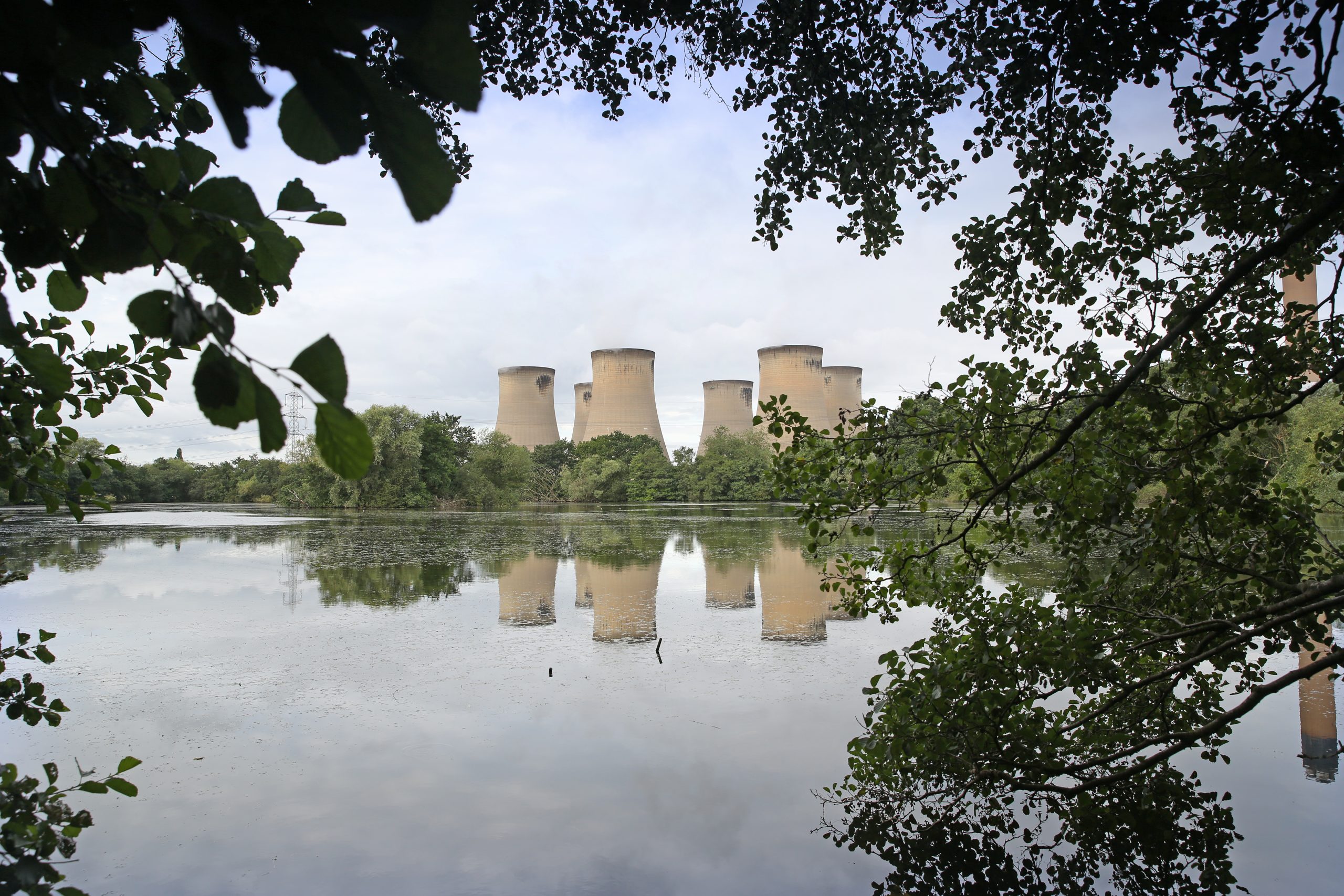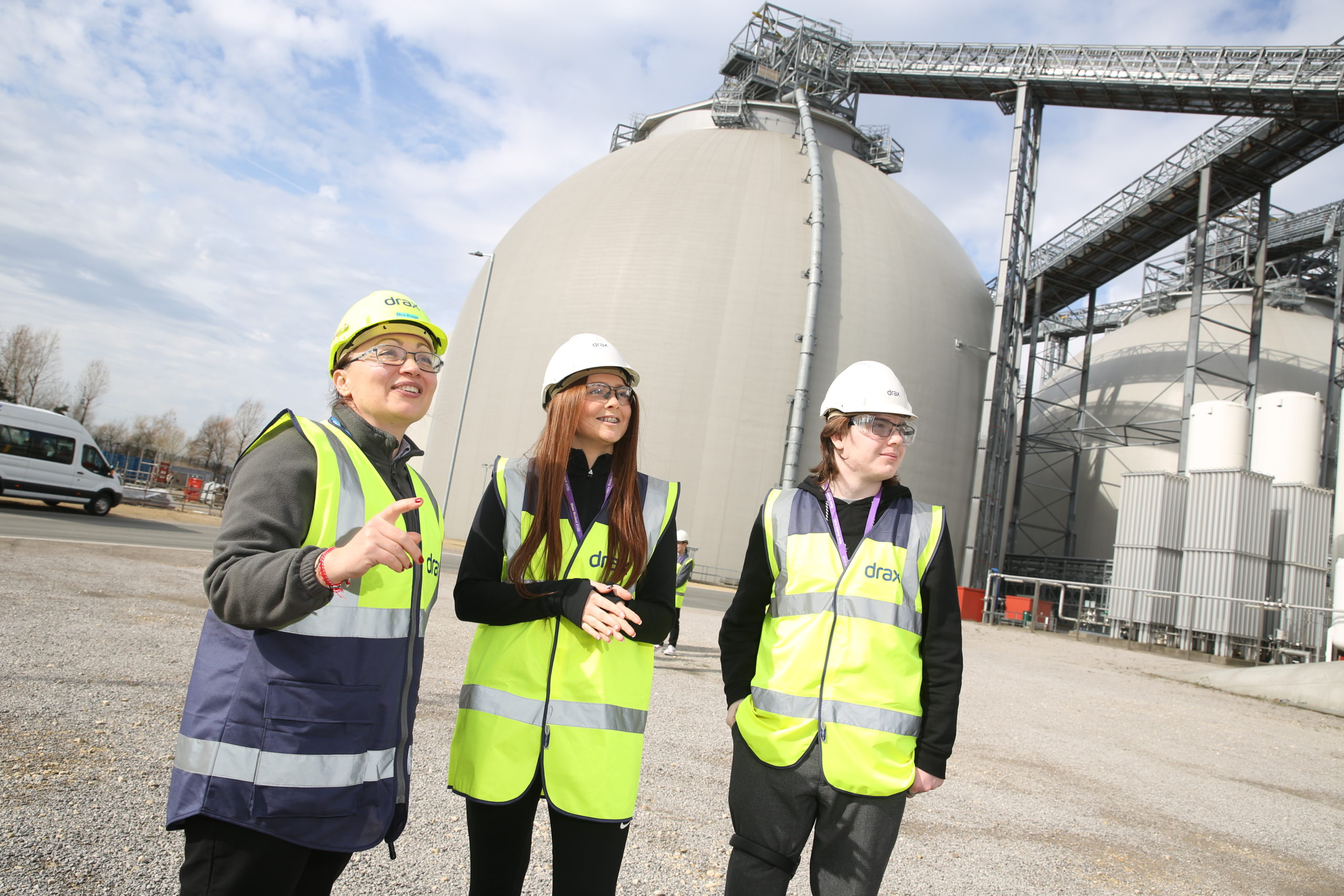
The UK’s biggest renewable power generator, Drax Group, is inviting schools and colleges back to its eponymous power station for the first time since the country went into lockdown due to Covid-19.
Prior to the pandemic, Drax Power Station near Selby in North Yorkshire, welcomed more than 12,000 visitors every year, many of whom were students, visiting as part of the renewable energy company’s initiatives to encourage young people to study STEM (Science, Technology, Engineering and Maths) subjects, boosting skills across the region.
In line with lockdown rules, Drax suspended its public tours in March 2020 to protect its key workers, who worked around the clock throughout the pandemic to ensure the country had the renewable electricity it needed. Drax produces 12% of the UK’s renewable electricity – more than any other generator.
Wyke Sixth Form College in Hull was one of the first schools to visit the power station since it reopened, taking part in a tour which supported the work the students are doing to understand how renewable electricity is generated.
Plant Director Bruce Heppenstall said: “We work closely with schools in our communities to inspire the next generation to study STEM subjects, and we’re pleased to be able to offer tours of the power station again after being closed to the public for so long.
“These tours are so important – they fire up students’ imaginations by showing them some of the cutting-edge green technologies we’re pioneering, such as BECCS which could play a vital role in addressing the climate crisis as well as delivering jobs and clean growth here in the North.”
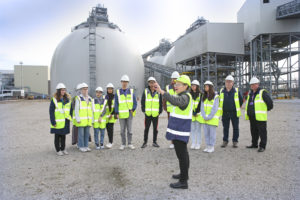
Wyke Sixth Form College students in front of Drax biomass domes
The group of 20 students aged between 16 and 18, were taken on a full tour of the site, which included seeing Drax’s Bioenergy with Carbon Capture and Storage (BECCS) pilot project. BECCS is a vital negative emissions technology which Drax plans to use to permanently remove millions of tonnes of carbon dioxide from the atmosphere every year, whilst also generating the reliable, renewable electricity the country needs.
BECCS at Drax would support over 10,000 jobs at its peak, and it is vital that the region’s workforce has the skills needed to deliver this green energy technology, enabling the UK to meet its net zero target.
Sophie Thompson, Head of Science at Wyke Sixth Form College, said: “The students had a great day at Drax, learning about how the electricity system works and where our electricity is generated. Visits like this are so valuable because seeing the power station and the scale of the operations is impossible to replicate in a classroom – it really brings the subject to life.”
During the tour, pupils learnt how renewable electricity is generated and discovered how sustainable, wood pellets have enabled Drax to reduce its carbon emissions by 95% in a decade, making it Europe’s biggest decarbonisation project.
They saw the 427-metre turbine hall that houses the huge turbines which power the generators to produce electricity, as well as the wood pellet storage domes – each large enough to fit The Royal Albert Hall inside, and the 115m high cooling towers, which are taller than the Statue of Liberty.
Tours are free to all primary and secondary schools and can be tailored to suit the area of the curriculum teachers are interested in.
Schools interested in organising a tour, should contact drax.tours@drax.com.
Photo caption: L-R: Drax visitor centre guide Stanimira Brown and Wyke Sixth Form College students Olivia Laws and Kai Carney
ENDS
Media contacts:
Megan Hopgood
Communications Officer
E: megan.hopgood@drax.com
T: 07936 350 175
Editor’s Notes
Drax runs a number of other initiatives to support STEM education and skills, including:
- Providing laptops with free internet access
- Free virtual tours of Drax’s power stations
- Virtual STEM workshops in schools
- Virtual work experience
About Drax
Drax Group’s purpose is to enable a zero carbon, lower cost energy future and in 2019 announced a world-leading ambition to be carbon negative by 2030, using Bioenergy with Carbon Capture and Storage (BECCS) technology.
Its 3,400 employees operate across three principal areas of activity – electricity generation, electricity sales to business customers and compressed wood pellet production and supply to third parties. For more information visit www.drax.com
Power generation:
Drax owns and operates a portfolio of renewable electricity generation assets in England and Scotland. The assets include the UK’s largest power station, based at Selby, North Yorkshire, which supplies five percent of the country’s electricity needs.
Having converted Drax Power Station to use sustainable biomass instead of coal it has become the UK’s biggest renewable power generator and the largest decarbonisation project in Europe. It is also where Drax is piloting the groundbreaking negative emissions technology BECCS within its CCUS (Carbon Capture Utilisation and Storage) Incubation Area.
Its pumped storage, hydro and energy from waste assets in Scotland include Cruachan Power Station – a flexible pumped storage facility within the hollowed-out mountain Ben Cruachan.
The Group also aims to build on its BECCS innovation at Drax Power Station with a target to deliver 4Mt of negative CO2 emissions each year from new-build BECCS outside of the UK by 2030 and is currently developing models for North American and European markets.
Pellet production and supply:
The Group has 13 operational pellet plants with nameplate capacity of c.4Mt, plus a further two plants currently commissioning and other developments/expansions which will increase this to c.5Mt once complete.
Drax is targeting 8Mt of production capacity by 2030, which will require the development of over 3Mt of new biomass pellet production capacity. The pellets are produced using materials sourced from sustainably managed working forests and are supplied to third party customers in Europe and Asia for the generation of renewable power.
Drax’s pellet mills supply around 30% of the biomass used at its own power station in North Yorkshire, England to generate flexible, renewable power for the UK’s homes and businesses.
Customers:
Drax is the largest supplier of renewable electricity to UK businesses, supplying 100% renewable electricity as standard to more than 370,000 sites through Drax and Opus Energy.
It offers a range of energy-related services including energy optimisation, as well as electric vehicle strategy and management.
To find out more go to the website www.energy.drax.com






